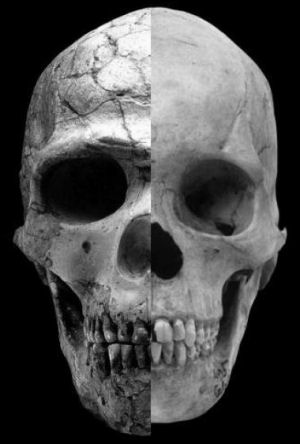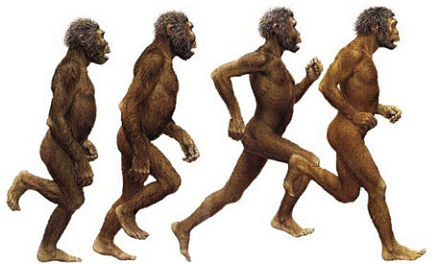
The elephant – a huge package of protein that is easy to hunt – disappeared from the Middle East around 400,000 years ago. This would have imposed considerable nutritional stress on Homo erectus, say Tel Aviv University researchers, who suggest that the loss of easy food favored hominids who were more knowledgeable and better at hunting smaller prey. Authors of the new study, Ran Barkai, Miki Ben-Dor and Avi Gopher, contend that while elephants have long been known to have been part of the Homo erectus diet, their significance in relation to the evolution of modern humans has been misunderstood.
According to Ben-Dor, elephants were the ultimate prize for hunters – slower than other sources of prey and large enough to feed groups, the giant animals had an ideal fat-to-protein ratio that remained constant regardless of the season. In short, says Ben-Dor, they were the ideal food package for Homo erectus.
The new work is based on animal bones found at two sites in Israel: Gesher B’not Yaakov (dating back nearly 800,000 years and associated with Homo erectus) and Qesem Cave (dating back 400,000 to 200,000 years ago). Gesher B’not Yaakov contains elephant bones, but at Qesem Cave, which is bereft of elephant bones, the researchers discovered signs of post-erectus hominids, with blades and sophisticated behaviors such as food sharing and the use of fire.
“When elephants began to die out, Homo erectus needed to hunt many smaller, more evasive animals. He had to become calculated about hunting,” Ben-Dor explained, suggesting that this change is evident in the physical appearance of modern humans, lighter than Homo erectus and with larger brains.
The findings raise an intriguing possibility, suggesting that the disappearance of elephants 400,000 years ago was the reason that modern humans first appeared in the Middle East, rather than Africa. In Africa, argue the researchers, elephants disappeared from archaeological sites and Homo sapiens emerged much later.
Prof. Gopher says the findings call what scientists know about the birth-place of modern man into question. “Evidence from the Qesem Cave corroborates this revolutionary timeline. Findings from the site dated from as long as 400,000 years ago clearly indicate the presence of new and innovative human behavior and a new human type. This sets the stage for a new understanding of the human story.”
Related:
Discuss this article in our forum
Bashed-in prehistoric skull hints at the invention of violence
Caveman cook calorie kerfuffle quantified


















Comments are closed.